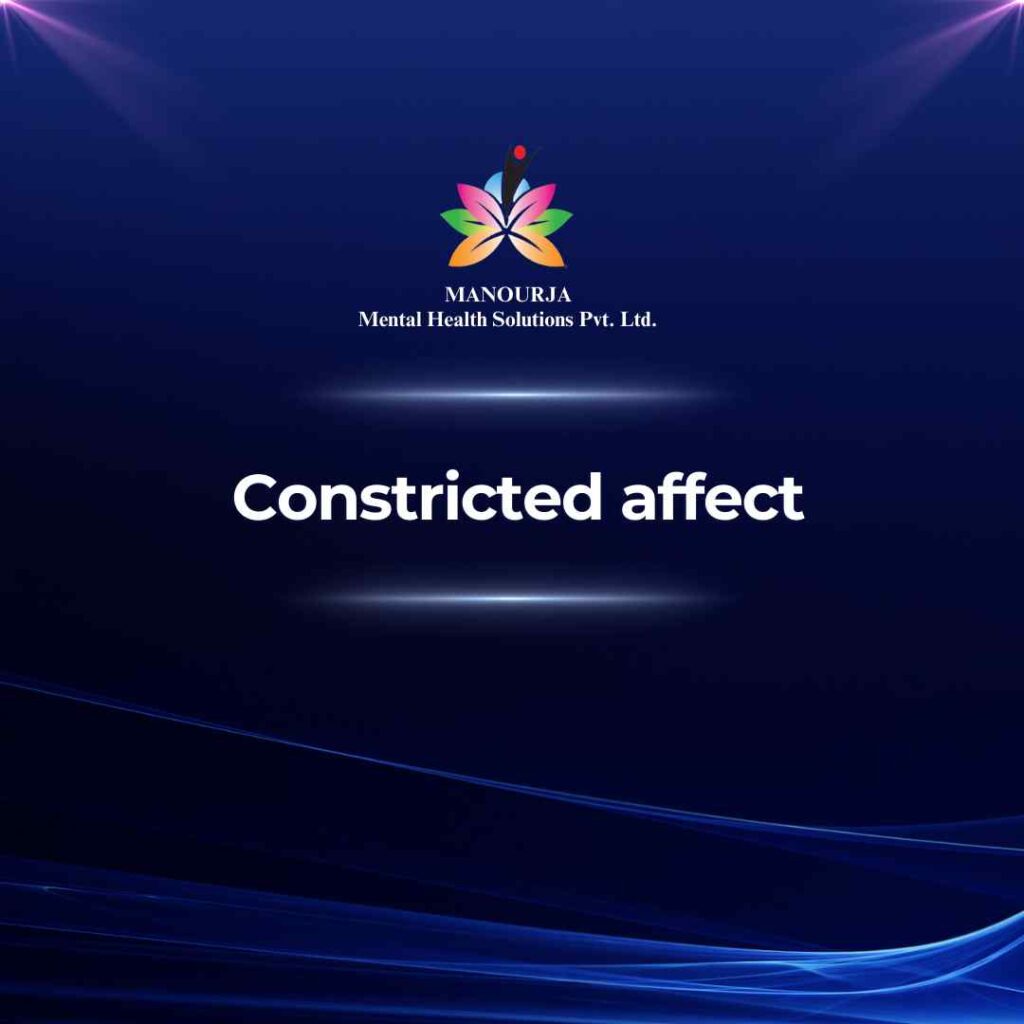Constricted Affect

Constricted affect refers to a restricted range or intensity of emotional expression that is noticeably reduced compared to what is typical or expected for a given situation. Individuals with constricted affect may display limited facial expressions, vocal tone, or body language, conveying a diminished capacity to express or experience emotions. This restriction in emotional expression can be a prominent feature of certain mental health disorders, impacting social interactions and communication.
Constricted Affect as a Sign of Mental Illness
Constricted affect is often observed in various mental health disorders, particularly mood disorders and certain personality disorders. It can manifest as a primary symptom or as a secondary feature of other psychiatric conditions, influencing the individual’s ability to engage in meaningful emotional experiences and interpersonal relationships.
Mental Health Conditions Associated with Constricted Affect
- Constricted affect is commonly seen in depressive disorders such as major depressive disorder and persistent depressive disorder. Individuals experiencing depression may display flattened emotional responses, reduced facial expressions, and diminished vocal inflections, reflecting a lack of interest, pleasure, or vitality.
- Constricted affect is a characteristic feature of schizoid personality disorder, where individuals tend to be emotionally detached, aloof, and withdrawn. They may exhibit limited emotional expression, preferring solitary activities and showing little interest in social interactions or close relationships.
- Individuals with schizophrenia may display constricted affect as part of the negative symptoms of the disorder. Constricted affect can co-occur with other negative symptoms such as social withdrawal, apathy, and reduced motivation, contributing to impairments in emotional responsiveness and social functioning.
Posttraumatic Stress Disorder (PTSD)
- Constricted affect can be present in individuals with PTSD, particularly during periods of emotional numbing or avoidance of trauma-related stimuli. Emotional constriction may serve as a coping mechanism to protect against overwhelming emotions associated with traumatic memories or experiences.
Autism Spectrum Disorder (ASD)
- Constricted affect may be observed in individuals with ASD, where difficulties in social communication and interaction are core features of the disorder. Limited emotional expression and reduced reciprocity in social interactions can contribute to challenges in forming and maintaining relationships.
Constricted affect requires careful assessment within the context of an individual’s overall clinical presentation and may warrant further evaluation by mental health professionals to determine its underlying cause and associated psychiatric condition. Treatment approaches may involve psychotherapy, medication management, and supportive interventions aimed at addressing the underlying factors contributing to constricted affect and promoting emotional expression and engagement in social relationships.
At MANOURJA, we believe in the transformative power of counseling. Our experienced therapists offer a safe and supportive space where you can explore your thoughts, emotions, and challenges. Through personalized counselling sessions, we’ll work together to develop coping strategies, build resilience, and achieve lasting positive change. Discover the path to a healthier, happier you with MANOURJA counselling services.
MANOURJA Rehabilitation Services
At MANOURJA, we’re dedicated to helping you in rebuild your life, after difficult times. Our rehabilitation services focus on understanding what you need to move forward, whether you’re recovering from addiction, trauma, or any psychological – social challenges. We create personalized plans, that are all about helping you, regain your strength and find hope again. With a caring team by your side, you’ll have the support to make real progress and take steps toward a brighter, healthier future.
